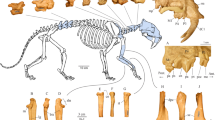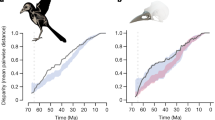Abstract
FROM time to time I am asked by students, botanical and other, Was Huxley a great man? Did he do very much? I have a clear answer. I say, if you were a zoologist you could not ask that question, for you would know that Huxley worked over almost the whole face of zoology, and that so much of modern classification and terminology is the product of his logic and “organised common sense” that if we-turn to any text-book earlier than about 1850, when Huxley's operations were beginning, we feel ourselves in zoological pre-history. It is all very well to say that anybody who chose to look could see that starfishes, Holothurians and Medusae should not be classed together and with various other creatures, but neither Lamarck nor Cuvier did notice that Radiata and Polyps were preposterous medleys. Most of the great groups at one time or another came under Huxley's attention, and his instinct for order and his morphological sagacity were so sure that his judgment has been generally accepted by his successors.
This is a preview of subscription content, access via your institution
Access options
Subscribe to this journal
Receive 51 print issues and online access
$199.00 per year
only $3.90 per issue
Buy this article
- Purchase on Springer Link
- Instant access to full article PDF
Prices may be subject to local taxes which are calculated during checkout
Similar content being viewed by others
References
"Collected Essays", vol. 2, 1893, p. 463.
Rights and permissions
About this article
Cite this article
BATESON, W. Huxley and Evolution. Nature 115, 715–717 (1925). https://doi.org/10.1038/115715a0
Issue Date:
DOI: https://doi.org/10.1038/115715a0
Comments
By submitting a comment you agree to abide by our Terms and Community Guidelines. If you find something abusive or that does not comply with our terms or guidelines please flag it as inappropriate.



